- Home
- Paula Byrne
Look to Your Wife
Look to Your Wife Read online
Copyright
William Collins
An imprint of HarperCollinsPublishers
1 London Bridge Street
London SE1 9GF
www.WilliamCollinsBooks.com
This eBook first published in Great Britain by William Collins in 2018
Copyright © Paula Byrne 2018
Cover design by Heike Schüssler
Cover photographs © plainpicture/Design Pics/Darren Greenwood (lips); Gallery Stock (woman, landscape)
Paula Byrne asserts the moral right to be identified as the author of this work
A catalogue record of this book is available from the British Library
All rights reserved under International and Pan-American Copyright Conventions. By payment of the required fees, you have been granted the non-exclusive, non-transferable right to access and read the text of this e-book on-screen. No part of this text may be reproduced, transmitted, downloaded, decompiled, reverse engineered, or stored in or introduced into any information storage and retrieval system, in any form or by any means, whether electronic or mechanical, now known or hereinafter invented, without the express written permission of HarperCollins.
Source ISBN: 9780008270582
Ebook Edition © April 2018 ISBN: 9780008270599
Version: 2018-03-14
Dedication
For Matthew
Epigraph
So will I turn her virtue into pitch,
And out of her own goodness make the net
That shall enmesh them all.
William Shakespeare, Othello
Without the Tweets, I wouldn’t be here.
Donald J. Trump, 45th President of the United States of America, interviewed in the Oval Office
Twitter is an online social networking service that enables users to send and read short 140-character messages called ‘tweets.’ Registered users can read and post tweets, but those who are unregistered can only read them. Users are identified by a ‘handle,’ indicated by an ‘at’ sign.
Lisa Blaize @Lisa_Blaize
Twitter may be my undoing!
Contents
Cover
Title Page
Copyright
Dedication
Epigraph
PRELUDE: The Letter
PART ONE: Innocence
CHAPTER 1: Hamlet Cocks Up
CHAPTER 2: Lisa
CHAPTER 3: After the Party
CHAPTER 4: The Truth Will Set You Free
CHAPTER 5: ‘I’m Going to Rescind that Ticket, Sir’
CHAPTER 6: Missy
CHAPTER 7: The Fashion Mistress
CHAPTER 8: Drugs Chat
PART TWO: Guilt
CHAPTER 9: DMs
CHAPTER 10: Meaningful Coincidences
CHAPTER 11: All My Pretty Chickens
CHAPTER 12: What’s Happening?
CHAPTER 13: Sandflies
CHAPTER 14: The Cabinet of Curiosities
CHAPTER 15: Queenie
CHAPTER 16: The End of the Affair
PART THREE: Accusation
CHAPTER 17: Belinda Bullrush
CHAPTER 18: An Unexpected Letter
CHAPTER 19: Flattered and Followed
CHAPTER 20: The Albion
CHAPTER 21: ‘I’m Not a Troll’
CHAPTER 22: Malicious Communications
CHAPTER 23: @FreddieSwings
CHAPTER 24: My Fabulous Life
CHAPTER 25: #Lovelyme
CHAPTER 26: Literary Ladies
CHAPTER 27: Hacked Off
CHAPTER 28: A Shed of One’s Own
PART FOUR: Expiation
CHAPTER 29: Honeytrap
CHAPTER 30: The Mystery of the Missing Author
CHAPTER 31: The Evening Shift
CHAPTER 32: Hit and Run
CHAPTER 33: Blaze
CHAPTER 34: Suspicion
CHAPTER 35: Christmas Market
CHAPTER 36: ‘What You Know, You Know’
CHAPTER 37: Launch
EPILOGUE: Ratby, Leicester
Acknowledgements
Also by Paula Byrne
About the Author
About the Publisher
PRELUDE
The Letter
June 17th
Dear Headmaster,
Please, please, please do something about Lisa. When you first came to Blagsford School, we were all thrilled to have a man of your calibre and academic excellence. Edward Chamberlain is a name that inspires awe and reverence in the educational world. I, amongst many others, was full of admiration when you took on that academy ‘sink’ school in the north of England. How brave and clever of you. Everyone knew that you would turn it around. But you surpassed all expectations, raising it from ‘Unsatisfactory’ to ‘Outstanding’ in such a short time, before coming here.
Naturally, some whispered that you would use it to your advantage, only to gain the coveted knighthood for services to education. Congratulations, by the way. Well deserved (though we all know that you only got it because of your background). We know how lucky we are to have you. I have been one of your most loyal supporters since you came to the school a year ago. It pains me to have to write this: I can barely believe that I am doing so.
But please, Edward, silence your wife. She is a liability, and she is damaging your reputation. Blagsford is a small world. The community of public schools is even smaller. Social media is a very useful tool, but Lisa’s embarrassing and vulgar tweets are presenting a very bad image for the school. The woman is barely literate, for heaven’s sake. She has no idea how to use French accents. Her grammar is appalling. I winced when she tweeted about meeting the opera singer ‘Jesse Norman’.
To many of us, it beggars belief that Lisa Blaize has published a book. Still more that it got some very good reviews and was shortlisted for the Fashion History Book Prize. Did she flash her boobs at one of the judges? Many say you wrote it. At the very least, her copy-editor must be first rate. I’ll wager the poor thing dreads the day when Lisa’s next typescript comes in.
I was invited to your celebration party, but, like quite a few other people, couldn’t face being subjected to another episode of The Lisa Show. Like many others, I was dreading what becoming Lady C would do to Lisa’s already grossly inflated ego. I am pleased for you, Edward, and would have happily attended the party if all I had to do was talk to interesting, intelligent and perhaps even inspirational folk. But I simply don’t have the time, let alone the inclination, to seek out ‘glam’ clothes to feed Lisa’s attention-seeking fantasies.
It’s clear from Lisa’s Twitter account just how obsessed she is with designer clothes and shoes and skin potions, and how much time and money she devotes to her appearance, but it’s naïve of her to expect the rest of us to do the same when we are extremely busy people, and, I might add, far less vain than Lisa.
I don’t know how much attention you pay to Lisa’s Twitter account, but if you have a look at her tweets over the past five or six months you will get a sense of what people are concerned about and why Lisa has become an object of ridicule, not just at Blagsford, but across the public school network more widely. You will be able to see that she comes across as almost pathologically vain and egotistical …
*
‘Lisa, I’ve had a poisonous letter. It’s unbelievably cruel. And very funny. It claims to be from a member of staff. It’s a vicious attack on you. Of course, I don’t believe a word of it. These idiots know nothing about you.’
‘Why do you say “about you”, and not “about us”? Is the letter aiming to hurt you or me? Is it about who you are and where you’ve come from?’
‘Probably me. First there was Airfaregate and now this. You’re my Achilles’ heel. They know that.’
‘Does it mention Sean?’
‘No. Would you like to see it?’
‘No, Edward, certainly not. I make it a rule not to read anonymous letters. People who write things like that are rarely “well” people. And I don’t want spiteful things sticking in my head. In fact, I’m surprised that you read it, knowing that it was unsigned. The person who did this wants to sow a seed of doubt in you. Please don’t read it again. Throw it away and forget about it. In fact, just give it to me.’
‘But they seem to know so much about you. I’m curious. It reads to me like a bitchy gay, you know the type who hates women. Well, there are lots of them in the world of teaching, so no clue there. Critical of your tweets, your grammar, your body. Digs at your Liverpool background. It even implies that I wrote your book for you.’
‘Ah, Sir Edward Chamberlain, that purveyor of feminist fashion history. The man I met a year after my book was published. But I hate to see you so upset. Don’t let them get to you. It doesn’t bother me one bit. Is it someone jealous of the knighthood? How petty and unkind. Anyway, I’m not ashamed of being a Scouser and not having had a posh education.’
‘Darling, perhaps you had better stop tweeting for a bit. Just let the dust settle.’
PART ONE
Innocence
CHAPTER 1
Hamlet Cocks Up
Blagsford School for Boys was founded in 1552 under a law set out in the Charities Act of 1545, which had been passed by Henry VIII to put to use funds from the dissolution of the monasteries. For nearly four hundred years it stood opposite the Cornmarket in a quiet, pretty Midlands market town.
Between the wars, it moved to the edge of town. There was a need for more boarding houses, and an opportunity arose when death duties forced a local gentry family to sell their eighteenth-century mansion with its landscaped grounds – readily convertible to a sports field – and its small lake (or was it a large pond?). A few Old Blaggers objected, saying School wouldn’t be School in a new location, but the move was a success.
Blagsford had twice made it to the top fifty of the Sunday Times Independent School Ratings. The Good Schools Guide described it as ‘a comfortable mix of brains, brawn, and artistic flair, but demanding and challenging too’. Less good headlines were made after twenty-six pupils were taught the wrong Shakespeare play (Hamlet instead of Much Ado about Nothing) in preparation for an A level examination.
Every English teacher’s worst nightmare, Edward had thought to himself, reading the story in the paper. As a Tudor historian with a particular interest in the cultural consequences of education policy, and a special fondness for Hamlet, he felt a real sympathy for Mr Camps, the poor man who was forced into early retirement by the governors after the Hamlet cock-up. Though he was also quietly grateful. Camps happened to be the head, who liked to lead from the front by taking one A level set himself. It was probably because he was overwhelmed by administrative duties, and didn’t have time to attend departmental meetings, that he had taught the wrong play. The resultant vacancy had been Edward’s opportunity to apply for the position of Headmaster of Blagsford.
*
Edward had won a scholarship to a famous public school himself, got into Oxford, and taken a first-class degree in history.
He had stayed on to complete his doctorate, which was then published as an academic monograph entitled Gilded Lilies: Grammar School Education and Social Mobility in Tudor England. He was pleased with the pun in the title, though he had to explain it whenever someone at a cocktail party asked him what his book was about.
In the early sixteenth century, a man named William Lily wrote the standard Latin grammar textbook for use in schools. In the middle of the century, the Tudor monarchs founded numerous new grammar schools in order to train up a kind of civil service for the nascent modern state. This gave lower middle-class boys ample opportunities for social mobility. By the end of the century, Lily’s grandson John had benefited from this – he had become the most famous and popular writer in Elizabethan England, thanks to his clever (but admittedly unreadable) novel Euphues, and his court comedies that Queen Elizabeth absolutely adored. And, of course, this same process of education and social mobility was the key to the life and work of William Shakespeare, whose plays he adored. So you see, Edward would conclude, in best lecturer mode, it was the educational revolution that had made Hamlet possible.
Edward had wrestled with the idea of becoming an academic, but felt that he didn’t quite have the killer touch. He knew from certain aspects of his postgraduate experience that he would never gain full institutional acceptance in the world of Oxbridge, and he saw too many fellow students exiled to junior lectureships in dreary, rainy places like Dundee and Belfast. He was more of a big fish in a small pond sort of guy, and felt that he would have more freedom (and certainly more money) as a teacher in a good public school. They were always on the lookout for bright young men who knew the tricks of the trade when it came to Oxbridge admissions, which was what the parents cared about. He soon had half a dozen offers to become a history teacher. He was relieved that the independent schools didn’t bother with all the nonsense of having to do an additional teacher training degree, where all you learned was lesson planning and crowd control.
Well, he certainly had the money, thanks to the live-in accommodation arrangements when he became a housemaster. But not quite the freedom he might have expected to continue his writing career. In time, though, he was glad of that. He discovered that he was good at organization, and liked running meetings. There was something satisfying about the art of letting everyone have their say, while still pushing the business along. Before long, he was promoted to deputy head in a minor public school just outside Guildford, in the south of England. It was a place that aspired to imitate his own famous alma mater.
Then he had a kind of epiphany. He wasn’t really sure whether it was out of idealism or ambition, but he suddenly decided to leave the private sector and venture away from the south. Was it because he looked around the staffroom one day and saw old men with thinning hair who had never left the cocoon of public-school life? Or was it that he genuinely believed that, having made his case about education and social mobility in Tudor England, he could actually put it into practice in the real world? Was it his vocation to bring black kids out of the ghetto? Or maybe he knew that it would give him a certain edge, a fast track to greater things. So he had applied for the position of head teacher at St Joseph’s Academy in Liverpool.
His friends had teased him mercilessly, saying he wouldn’t last five minutes. ‘Too posh, mate,’ said Nick, his best friend from Oxford. He knew that there was an element of truth in this; he was Oxford through and through. Of course it was a risk applying for the Academy job, but, unlike most of the people he knew, he liked taking risks. St Joseph’s was desperate for a turnaround, and in normal circumstances would not have even considered a man from the public-school sector.
At interview, the panel was impressed by Edward’s CV, but more so by the man himself. He was told that he and another candidate were to be called back for a second interview. He had a hunch, from things he had overheard on the day of the first interview, that his rival was an internal candidate. I bet they’ll go for the safe option, he said to himself. He had been impressed by the governors, and had liked the energy and grittiness of Liverpool. He really wanted the job.
He phoned Nick to talk it over.
‘Ed, that’s so weird that you called – I was about to email you. Did I ever tell you about my American cousin? Lives in Boston, filthy rich and on the board of a top school out there – I mean really top, Milton Academy. Just outside Boston, feeder for Harvard and Yale. Couple of the Kennedy boys went there. T. S. Eliot, James Taylor, you name it. They’re looking for a new head of history, and he asked me for advice. You said you wanted a change: how about the New World?’
Edward was an Englishman to his core. He had no desire to move to America, not even to Anglophile New England. But h
e saw his opportunity. He emailed the secretary to the governors of St Joseph’s Academy and asked about their timetable for a final decision, mentioning in passing that he was also having to make a decision about an offer from a top American private school. He stressed that he was really passionate about the St Joseph’s job, but that if it wasn’t going to work out, he’d want to take the American opportunity.
This swung the decision. One of the St Joseph’s governors was in PR. He persuaded his colleagues that this would be a great story for the school. The decision was made before the second interview, and the PR man made sure that there was a big splash: ‘Ed the Head turns down $250k to come to Liverpool’ screamed the headline in the Echo. It was the sort of story that Scousers loved, just like the rumours that long-lost son John Lennon was allegedly heading back to Liverpool – the day before he was brutally gunned down on a cold December day. No one had really believed it, but they all loved the story.
Ed was delighted, though he did wonder how the internal candidate had reacted at being brushed off before the second interview. Later, he learned that the newspaper story was the first that the internal candidate, Chuck Steadman – who, by a strange coincidence, was an American – had heard of the news. Black mark for the governors, Edward said to himself. Communication, communication, communication.

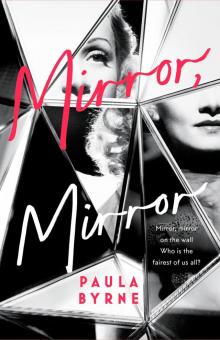 Mirror, Mirror
Mirror, Mirror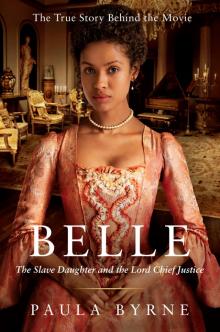 Belle
Belle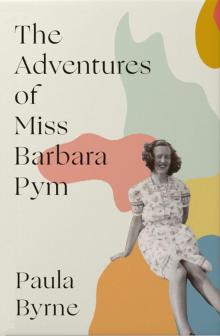 The Adventures of Miss Barbara Pym
The Adventures of Miss Barbara Pym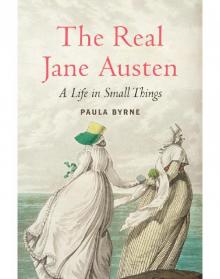 The Real Jane Austen
The Real Jane Austen Look to Your Wife
Look to Your Wife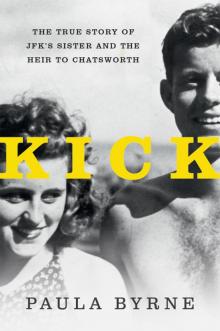 Kick
Kick Perdita
Perdita Mad World: Evelyn Waugh and the Secrets of Brideshead (TEXT ONLY)
Mad World: Evelyn Waugh and the Secrets of Brideshead (TEXT ONLY)